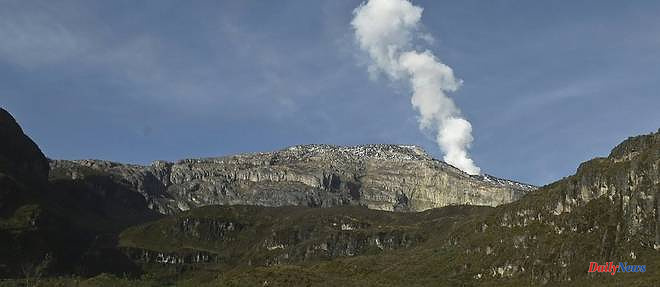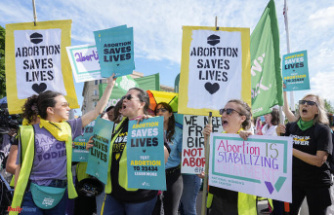The plume of smoke rising above the snow-capped crater is a reminder of the latent threat of an eruption. But most peasants at the foot of Colombia's Nevado del Ruiz volcano don't want to leave their land and animals despite preventive evacuation orders.
Luis Cañon says he is "afraid" of the rumblings of the volcano but sees no other way out than "resignation".
"I have to give up everything? My crops! My animals! And when I come back, there will be nothing left!" the 50-year-old farmer told AFP, wearing a straw hat, a tied poncho around the neck.
The threat of an eruption has been palpable since the end of March, the daily average of earthquakes inside the volcano has increased from 50 to 12,000.
As a result, the authorities raised the level of alert from yellow to orange, and ordered the evacuation of 7,500 residents, families of farmers settled on the slopes of the volcano whose unpredictable eruption threatens a total of some 57,000 people around.
But there are many who are reluctant. "Farmers have cows, horses, goats, poultry, which prevents them from moving and carrying out preventive evacuation (...) for fear that they will be stolen", recognizes the adviser presidential, Luis Fernando Velasco.
To help them, the government has adopted "exceptional measures to move around 80,000 animals (...) from areas on alert", and thus save human lives, he explains.
Here, however, everyone knows the extent of the threat from Nevado del Ruiz because the ghost of the 1985 eruption, the second deadliest of the 20th century, still haunts the region. A mudslide, called lahar, swept through an entire city and 25,000 people died under a torrent of ash, water and rocks, caused by the melting ice clinging to the volcano.
Luis Londoño still remembers that "terrifying" November 13. At night, a nearby river was "roaring" and people were running around "crying and screaming that the world was ending".
Residing in Herveo, a town 30 km northeast of the volcano, he says he fears a new tragedy. "The fear is great that the snowy mountain will explode, everyone is talking about it in town", says this 65-year-old man who does not yet know what he will do if the evacuation order falls.
From time to time, "a few ashes" fall, says another resident, Cecilia Gallego. “Sometimes I go to sleep more anxious than other nights thinking that the ashes will bring down the roof” of the house, she says, however skeptical of the requests for preventive evacuation from the police who go from house to house. inform the population.
Arbeis Rojas, the mayor of the municipality of 9,000 inhabitants, assures him that everything is ready: "evacuation protocols, shelters, meeting points, both in urban areas and in rural areas".
The mist falls in the late afternoon, hiding the summit of the volcano and removing its imposing threat.
“I am calm, because it is a beautiful day and there is nothing abnormal”, reassures Cecilia Gallego, graying hair and crucifix around her neck.
However, the presidential adviser, Luis Fernando Velasco says he is "concerned" by "the earthquakes which are getting closer and closer to the crater, which, according to volcanologists, is not a good sign".
John Makario Londoño-Bonilla, director of the Colombian geological service, cannot be formal about the imminence of an eruption. It is "probable, in terms of days or weeks" he says in front of a wall of screens where the slightest movements of the ground are reported.
On the steep paths that surround the volcano, a few soldiers control the comings and goings around the natural park, which is closed.
Tourist activity is suspended and César Ortegon, guide to the hot springs that emanate from the snowy mountain, leaves the premises.
He remembers 1985 and won't risk it a second time. Surviving the disaster was for him "like a new birth".
He knows in advance that "not everyone is going to leave", but closes the door of his premises, greets his companions and climbs into a truck. Relieved.
08/04/2023 12:17:36 - Murillo (Colombia) (AFP) - © 2023 AFP












